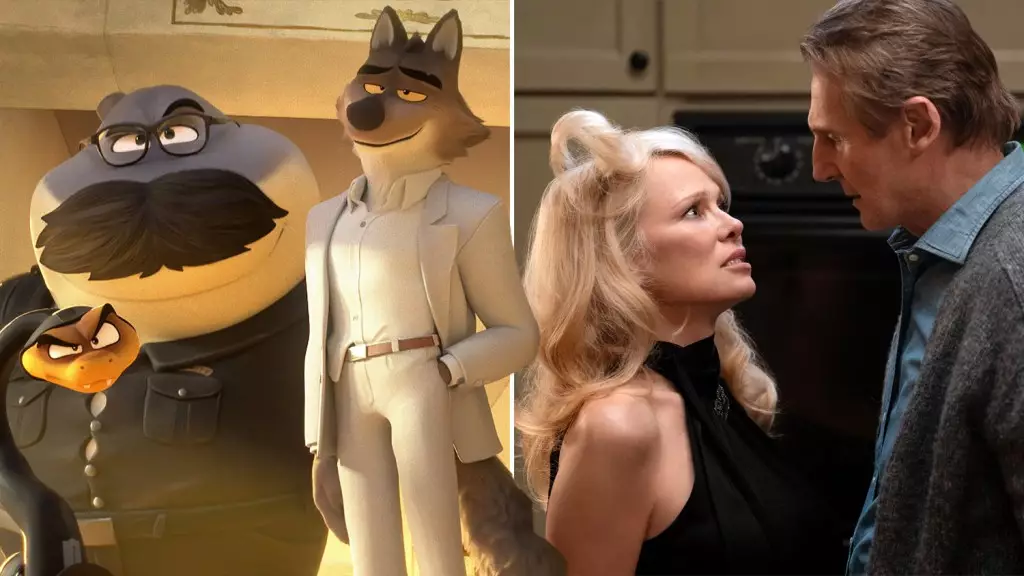The recent box office numbers paint a picture of tentative recovery from the Covid-induced slump that previously crippled the cinematic industry. However, beneath the surface, this resurgence appears superficial and largely disconnected from genuine cultural vitality. Films like *The Bad Guys 2* and *The Naked Gun* reboot attempt to rekindle audiences’ interest in mainstream comedy, but their modest performance indicators—such as a $2.25M opening for *The Bad Guys 2*—belie their financial ambitions. These figures, though promising in isolation, fail to mask a deeper trend of stagnation and superficiality that characterizes today’s filmmaking landscape. Instead of meaningful storytelling or cultural reflection, Hollywood and its corporate backers seem content to chase safe, familiar franchises that require minimal innovation and offer maximum profit margins.
The Hollywood Business Model: A Focus on Profit Over Cultural Impact
What stands out most is the emphasis on production costs and expected returns rather than the societal value of these films. The $80M budget for *The Bad Guys 2*, nearly $10M more than the first installment, underscores an industry obsessed with doubling down on proven commodities rather than investing in original, bold narratives. This shortsightedness is compounded by the reliance on nostalgia—reboots and sequels—rather than fresh ideas that might grapple with real issues or push cultural boundaries. The reboot of *The Naked Gun*, brewed amidst Paramount’s corporate maneuverings, exemplifies how studio priorities have shifted from cultural contribution to financial maneuvering, with the much-touted success of a comedy franchise reduced to mere box office metrics rather than cultural relevance.
The Commercialization of Comedy and the Erosion of Artistic Integrity
Comedic films, historically a mirror to societal quirks and realities, now often serve as mere palate cleansers for audiences craving light entertainment. Critics’ scores for these films—the 85% Rotten Tomatoes fresh for *The Bad Guys 2*, and the 90% for *The Naked Gun*—are often inflated by marketing and industry hype rather than genuine artistic merit. These scores suggest an incentive structure that rewards familiarity over innovation. The failure of *Together*, a romantic horror film with high critic and audience scores, to achieve blockbuster status reveals that even well-reviewed genre experiments are insufficient to stem the tide of audience disinterest in challenging narratives. The decline in ticket sales over weekends signals a broader societal fatigue with entertainment that doesn’t challenge or inspire but rather dulls and distracts.
The Cultural Consequences of Commercial Cinema’s Short-Sightedness
Behind the numbers is a broader cultural concern: the commodification of art at the expense of meaningful storytelling. As Hollywood and major studios chase quick hits, they neglect the responsibility to shape a society that values critical thinking, cultural diversity, and genuine reflection. The shortsighted focus on short-term profits prevents the industry from producing films that could contribute to cultural discourse, fostering instead a cycle of repetitive, safe content designed solely to generate immediate revenue. This pattern risks turning cinema into a mere utility rather than an art form capable of shaping societal values and fostering understanding across different communities.
The Need for a Cultural Revival Beyond Box Office Figures
To move beyond these limitations, stakeholders in the film industry must reconsider their priorities. Instead of obsessing over opening weekends and short-lived trends, there should be a renewed focus on supporting stories that challenge audiences, reflect societal complexities, and promote authentic values. The future of cinema doesn’t lie in payloads of franchise installments and remakes but in fostering creativity that resonates beyond transient box office spikes. This shift requires a cultural awakening within Hollywood—one that recognizes entertainment’s role not just as escapism but as a vital mechanism for cultural reflection and improvement.
In essence, the current state of Hollywood’s box office, and the industry’s broader trajectory, underscores a troubling disconnect between commercial interests and cultural responsibility. Until this gap is bridged, cinema risks becoming an echo chamber of superficiality and profit-driven mediocrity, rather than a platform for meaningful societal dialogue.

